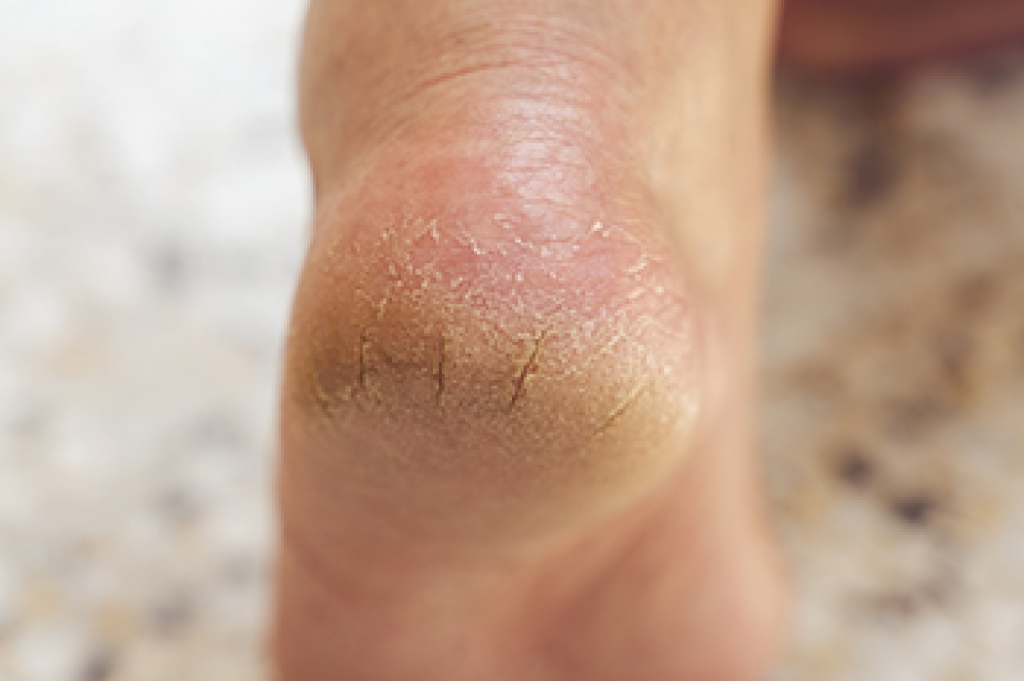
Cracked heels, also known as heel fissures, occur when the skin on the heels becomes dry and thickened, leading to painful cracks, termed fissures. This condition often results from excessive pressure, poor foot hygiene, or prolonged exposure to dry environments. Common causes include wearing open-backed shoes, standing for long periods of time, and having underlying conditions like diabetes or eczema. Risk factors include obesity, lack of moisture, and certain medical conditions that affect skin health. Symptoms of cracked heels often include rough, thickened skin on the heels, visible cracks, and discomfort or pain, particularly while walking. Painful cracked heels can interfere with completing daily activities. If you have developed this condition, it is strongly suggested that you visit a podiatrist who can offer treatment, which may include prescribed medication.
Cracked heels are unsightly and can cause further damage to your shoes and feet. If you have any concerns, contact Kentston Cripe, DPM from Roseville Foot & Ankle. Our doctor can provide the care you need to keep you pain-free and on your feet.
Cracked Heels
Cracked heels appear unappealing and can make it harder for you walk around in sandals. Aside from looking unpleasant, cracked heels can also tear stockings, socks, and wear out your shoes. There are several methods to help restore a cracked heel and prevent further damage.
How Do You Get Them?
Dry skin is the number one culprit in creating cracked heels. Many athletes, walkers, joggers, and even swimmers suffer from cracked heels. Age and skin oil production play a role to getting cracked heels as well.
Promote Healing
Over the counter medicines can help, especially for those that need instant relief or who suffer from chronic dry feet.
Wear Socks – Wearing socks with medicated creams helps lock in moisture.
Moisturizers – Applying both day and night will help alleviate dryness which causes cracking.
Pumice Stones – These exfoliate and remove dead skin, which allows for smoother moisturizer application and better absorption into the skin.
Change in Diet
Eating healthy with a well-balanced diet will give the skin a fresh and radiant look. Your body responds to the kinds of food you ingest. Omega-3 fatty acids and zinc supplements can also revitalize skin tissue.
Most importantly, seek professional help if unsure how to proceed in treating cracked heels. A podiatrist will help you with any questions or information needed.
If you have any questions, please feel free to contact our office located in Roseville, CA . We offer the newest diagnostic and treatment technologies for all your foot care needs.
